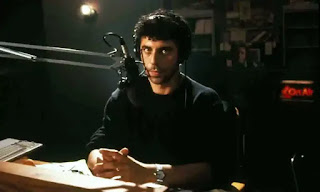But, for all his isolation and frequency as a guest of His Majesty, he is a masterful observer of Man and, if his repeated success in finding me despite my efforts to avoid him are exempla, an astute detective.
I should know by now that if I get a knock on my door at a late hour, it will likely be Whetu. This happened to me yesterday, which I find doubly surprising and deeply worrying given that I now live in a gated community, and at that hour, the gates were locked. Nevertheless, I felt an obligation to respond. Here is how the correspondence went.
HE: Kia Ora, Bro.
ME: Whetu.
HE: You got new home?
ME: Yes.
HE: You didn’t tell me.
ME: It slipped my mind.
HE: But I found you.
ME: Despite those gates being locked.
HE: They is?
ME: Don’t take it personally.
HE: Been a long time.
ME: Yes.
HE: A lot of water has passed under the tree.
ME: Under the bridge.
HE: That, too.
ME: Yep.
HE: How much?
ME: How much water?
HE: How much money.
ME: What!
HE: How much money for that water? I come to collect. It’s called Three waters, not free waters. Auntie Mahuta told me that.
ME: She’s your Auntie?
HE: Yo, bro.
ME: But you are, what, twice her age?
HE: A distant auntie. Anyway, she made whanau in charge of three waters. I get water under the tree…
ME: Bridge.
HE: I throw that in for free. I get tree water, and
cussies get other twos.
ME: And what are those?
HE: What?
ME: What waters?
HE: Ah…. rain?
ME: And?
HE: Dirty.
ME: Dirty waters?
HE: Yo.
ME: There seems to be something a bit murky about this, too.
HE: No, that Four Waters. Hone handles murky.
ME: Hone Mahuta?
HE: Uncle.
ME: Well, whatever money you are asking for, I am not paying it.
HE: You’re not?
ME: No.
HE: No?
ME: No.
HE: Well, I tells you what.
ME: What?
HE: I’m thirsty. Give me a couple of bottles of Waikato instead.
ME: Waikato water?
HE: Waikato beer. I am not drinking that river water s**t.









